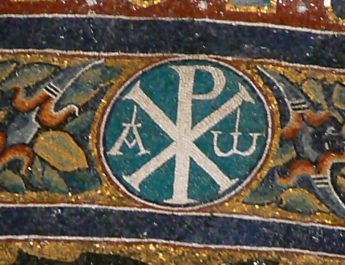Jeremiah 29:1, 4-14
NL412
1 These are the wordsA of the letterB that the prophetC JeremiahD
A “words” = dabar. From dabar (to speak, declare, discuss). This is speech, a word, a matter, an affair, charge, command, message, promise, purpose, report, request. It is a word, which implies things that are spoken of in a wide sense.
B “letter” = sepher. Perhaps from saphar (to tally or record something; to enumerate, recount, number, celebrate, or declare). This can be writing itself or something that is written like a document, book, letter, evidence, bill, scroll, or register.
C “prophet” = nabi. This is prophet, prophecy, speaker, or someone inspired.
D “Jeremiah” = Yirmeyah. From the same as yirmeyah (Jeremiah, “the Lord loosens” or “the Lord will rise”); {from the same as remiyya (slack, idle, lazy, negligent) + Yah (a shortened form of the name of the God of Israel; God, Lord); {from YHVH (proper name of the God of Israel; God, Lord; the self-existent or eternal one); from havah (to become) or hayah (to be, become, happen)}}. This is Jeremiah, meaning “the Lord loosens” or “the Lord will rise.”
sentE from JerusalemF to the remainingG eldersH among the exiles,I
E “sent” = shalach. This is to send out, away, send for, forsake. It can also mean to divorce or set a slave free.
F “Jerusalem” = Yerushalaim. From yarah (to throw, shoot, be stunned; to flow as water so figuratively to instruct or teach) + shalam (to make amends, to be complete or sound). This is Jerusalem, dwelling of peace.
G “remaining” = yether. From yathar (to jut over, remain behind, preserve, to excel). This is a remainder or excess. It can imply abundant or superiority. Additionally, it can be cord a free-hanging rope.
H “elders” = zaqen. From the same as zaqan (beard or chin – the beard represents old age). This is old, aged, or elder.
I “exiles” = golah. From galah (to remove, bring, carry, lead, appear, advertise; to strip someone or something bare in a negative sense; captives were typically stripped before they were sent into exile; used figuratively, in a positive sense, this word means reveal, disclose, discover). This is exile, captive, captivity, removing, or carried away.
and to the priests,J the prophets, and allK the people,L whom NebuchadnezzarM had taken into exileN from Jerusalem to Babylon.O
J “priests” = kohen. This is literally the one who officiates i.e. the priest. This is where the Jewish last name “Cohen” (and its variants) comes from.
K “all” = kol. From kalal (to complete). This is all or every.
L “people” = am. From amam (to darken, hide, associate; creating shadows by huddling together). This is people or nation. It can be used specifically for a tribe, collectively of troops or armies, or figuratively to refer to a flock of animals.
M “Nebuchadnezzar” = Nebukadnetstsar. From Akkadian Nabu-kudurri-utsur (Nebuchadnezzar; meaning “Nabu protect the king”). This is Nebuchadnezzar, a name meaning “Nebo, protect the boundary” or “Nabu, protect the king.” See https://en.wiktionary.org/wiki/Nebuchadnezzar
N “taken into exile” = galah. Related to “exiles” in v1. See note I above.
O “Babylon” = Babel. Perhaps from balal (to anoint, mix, overflow) OR from Akkadian Bbilim; perhaps from earlier Sumerian name Ca-dimirra (gate of god). This is Babylon or Babel. See https://en.wikipedia.org/wiki/Babylon.
4 Thus says the LordP of hosts,Q the GodR of Israel,S to all the exiles whom I have sent into exileT from Jerusalem to Babylon:
P “Lord” = YHVH. Related to “Jeremiah” in v1. See note D above.
Q “hosts” = tsaba. From tsaba (to wage war, serve, assemble, fight, perform, muster, wait on). This is a large group of persons (used figuratively for a group of things). It implies a campaign literally as with army, war, warfare, battle, company, soldiers. Can also be used figuratively for hardship or for worship.
R “God” = Elohim.
S “Israel” = Yisrael. Related to “God” in v4. From sarah (to persist, exert oneself, contend, persevere, wrestle, prevail) + el (see note R above). This is Israel, meaning God strives or one who strives with God; new name for Jacob and for his offspring. This refers to the people and to the land.
T “sent into exile” = galah. Same as “taken into exile” in v1. See note N above.
5 BuildU housesV and liveW in them; plantX gardensY and eatZ what they produce.AA
U “build” = banah. This is to build, make, set up, restore, repair, or obtain children. It is to build literally or figuratively.
V “houses” = bayit. Related to “build” in v5. Probably from banah (see note U above). This is house, court, family, palace, temple.
W “live” = yashab. This is to sit and so to remain and so to dwell. It is sitting for any reason – as a judge, in order to ambush, or just sitting quietly. Causatively, this can mean settling or marrying. This can also mean continue, endure, or establish.
X “plant” = nata. To fix or fasten, establish or plant. This is planting in a literal or figurative sense.
Y “gardens” = gannah. 12x in OT. From gan (garden that is fenced in; an enclosure); from ganan (to put a hedge around – generally, protect or defend; to cover or surround). This is a garden or an orchard.
Z “eat” = akal. This is to eat, devour, burn up, or otherwise consume. It can be eating in a literal or figurative sense.
AA “what they produce” = peri. From parah (to bear fruit, grow, be fruitful, increase; bearing fruit in a literal or figurative sense). This is fruit or reward.
6 TakeBB wivesCC and haveDD sonsEE and daughters;FF
BB “take” = laqach. This is to take, accept, carry away, receive. It can also have the sense of take a wife or take in marriage.
CC “wives” = ishshah. From ish (man); perhaps from enosh (human, humankind, mortal); from anash (to be weak, sick, or frail). This is woman, wife, or female.
DD “have” = yalad. This is to bear or bring forth. It can mean to act as midwife or to show one’s lineage. This is often used for birth or begetting.
EE “sons” = ben. Related to “build” and “houses” in v5. From banah (see note U above). This is son, age, child. It is son in a literal or figurative sense.
FF “daughters” = bat. Related to “build” and “houses” in v5 & “sons” in v6. From ben (see note EE above). This is daughter in a literal or figurative sense.
take wives for your sons, and giveGG your daughters in marriage,HH that they may bearII sons and daughters; multiplyJJ there, and do not decrease.KK
GG “give” = natan. This is to give, put, set, offer. It is to give literally or figuratively.
HH “marriage” = enosh. Related to “wives” in v6. See note CC above.
II “bear” = yalad. Same as “have” in v6. See note DD above.
JJ “multiply” = rabah. This is increasing in any aspect whether quantity, authority, size, quality, greatness, etc.
KK “decrease” = maat. This is diminished, decreased, reduced, insignificant. It is a broad sense of being small or becoming small. Figuratively, this can mean ineffective.
7 But seekLL the welfareMM of the cityNN where I have sent you into exile, and prayOO to the Lord on its behalf, for in its welfare you will findPP your welfare.
LL “seek” = darash. This is seek, ask, inquire, care for. Generally it means following in pursuit or following as part of a search, which implies seeking or asking. Also used specially to mean worship.
MM “welfare” = shalom. Related to “Jerusalem” in v1. From shalam (see note F above). This is completeness, soundness, welfare, favor, friend, good health. It is to be safe and figuratively well, happy, at peace, friendly. Abstractly, it includes the ideas of welfare and prosperity (not in excessive wealth, but in having enough).
NN “city” = iyr. From uwr (to awaken or wake oneself up). This can mean excitement in the sense of wakefulness or city. Properly, this is a place that is guarded. Guards kept schedules according to watches. This sense of the word would include cities as well as encampments or posts that were guarded.
OO “pray” = palal. This is to judge for oneself or in an official capacity. It can also mean to pray or make supplication, to entreat.
PP “find” = hayah. Related to “Jeremiah” in v1 & “Lord” in v4. See note D above.
8 For thus says the Lord of hosts, the God of Israel: Do not let the prophets and the divinersQQ who are amongRR you deceiveSS you, and do not listenTT to the dreamsUU that they dream,VV
QQ “diviners” = qasam. From qesem (a lot, oracle, divination, witchcraft, or a divine decision); from qasam (to conjure, divine, be a soothsayer; to determine something using lots or magical scrolls). This is to divine, conjure, distribute. It is to figure out though a lot or by using a magical scroll.
RR “among” = qereb. Perhaps from qarab (to come near or approach). This is among, in the midst, before, the center It is the inward part, whether literal or figurative. It can also be used for the heart, the site of thoughts and feelings. This word is also used as a technical term for the entrails of the animals who are sacrificed.
SS “deceive” = nasha. 15x in OT. This is to deceive, lead astray, trick, or delude.
TT “listen” = shama. This is to hear, call, consent, or consider. It implies listening intelligently, giving attention, and, because of these two factors, obedience and action are often implied.
UU “dreams” = chalom. From chalam (properly, to bind solidly and so to be plump; to be healthy or strong, to recover; figuratively, to dream). This is a dream or dreamer.
VV “dream” = chalam. Related to “dreams” in v8. See note UU above.
9 for it is a lieWW that they are prophesyingXX to you in my name;YY I did not send them, saysZZ the Lord.
WW “lie” = sheqer. Related to shaqar (to cheat, lie). This is deception, lie, or disappointment. It can also be something that is vain or wrongfully.
XX “prophesying” = naba. Related to “prophet” in v1. From nabi (see note C above). This is to prophesy. It can also refer to an ecstatic state – raving. It is associated with speech, song, teachings, and predictions.
YY “name” = shem. May be from sum (to put, place, set). This is name, fame, renown. A name was thought to indicate something essential about a person – something about their individuality. So, this word can also mean honor, authority, or character.
ZZ “says” = neum. From na’am (to speak a prophecy; properly, to whisper, which implies saying an oracle). This is an utterance or speaking an oracle.
10 For thus says the Lord: Only whenAAA Babylon’s seventyBBB yearsCCC are completedDDD will I visitEEE you,
AAA {untranslated} = peh. This is mouth in a literal or figurative sense. So, more literally, it can be beak or jaws. More figuratively, it refers to speech, commands, or promises.
BBB “seventy” = shibim. From sheba (seven – the number of perfection/sacred fullness). This is seventy.
CCC “years” = shanah. From shana (to change, alter). This is a year, age, old. It can also mean yearly.
DDD “completed” = male. This is fill, satisfy, replenish, accomplish, fulfill, confirm, or consecrate. It is fill in a literal or figurative sense.
EEE “visit” = paqad. This is to attend to or visit – can be used for a friendly or violent encounter. So, it can be to oversee, care for, avenge, or charge.
and I will fulfillFFF to you my promiseGGG and bring you backHHH to this place.III
FFF “fulfill” = qum. To arise, stand, accomplish, establish, abide. This is rising as in rising against, getting up after being sick or asleep, arising from one state to another, becoming powerful, or rising for action. It can also be standing in a figurative sense.
GGG “promise” = dabar + tob. Literally, “good word.” Dabar is the same as “words” in v1. See note A above. Tob is from tob (to be pleasing, to be good). This is good, beautiful, pleasant, agreeable, bountiful, at ease. This word is used for goodness as a concept, a good thing, a good person. This can refer to prosperity and welfare as well as joy, kindness, sweetness, and graciousness. So, this is ethically good, but also enjoyably good.
HHH “bring…back” = shub. To turn back, return, turn away – literally or figuratively. Doesn’t necessarily imply going back to where you started from. This is also the root verb for the Hebrew word for repentance “teshubah.”
III “place” = maqom. Related to “fulfill” in v10. From qum (see note FFF above). This is a standing, which is to say a spot or space a place. It can also refer to a locality or a physical/mental condition. HaMaqom is also a Jewish name for God – the place, i.e. the Omnipresent One.
11 For surely I knowJJJ the plansKKK I haveLLL for you, saysMMM the Lord,
JJJ “know” = yada. This is to know, acknowledge, advise, answer, be aware, be acquainted with. Properly, this is to figure something out by seeing. It includes ideas of observation, recognition, and care about something. It can be used causatively for instruction, designation, and punishment.
KKK “plans” = machashabah. From chashab (literally to weave; figuratively to think or plot something malicious). This is thought, scheme, imagination, purpose, or a plan either good or evil.
LLL “have” = chashab. Related to “plans” in v11. See note KKK above.
MMM “says” = neum. Same as “says” in v9. See note ZZ above.
plans for your welfare and not for harm,NNN to give you a futureOOO with hope.PPP 12 Then when you callQQQ upon me and comeRRR and pray to me, I will hearSSS you.
NNN “harm” = ra’. From ra’a’ (to be evil, bad, afflict; properly, to spoil – to destroy by breaking into pieces; figuratively, to cause something to be worthless; this is bad in a physical, social, or moral sense; that which displeases, to do harm or mischief, to punish or vex). This is bad, disagreeable, that which causes pain, misery, something having little or no value, something that is ethically bad, wicked, injury, calamity. This refers to anything that is not what it ought to be – a natural disaster, a disfigurement, an injury, a sin.
OOO “future” = acharit. From achar (to be behind, delay, be late, procrastinate, continue). This is the last, length, remnant, end, reward, future.
PPP “hope” = tiqvah. From qavah (to wait, look, gather together, bind together, collect; figuratively, to expect). This is literally a cord used to attach things. Figuratively, it’s expectation, hope, what you long for.
QQQ “call” = qara. This is to call or call out – to call someone by name. Also used more broadly for calling forth.
RRR “come” = halak. This is go, come, walk. It is walk literally and figuratively and includes people and animals. It can be used figuratively for one’s moral life – how we walk according to God’s way or against it. It can also refer to the walk of life as in the course one’s life takes, the choices we make, etc.
SSS “hear” = shama. Same as “listen” in v8. See note TT above.
13 When you searchTTT for me, you will findUUU me; if you seek me with all your heart,VVV 14 I will let you find me, saysWWW the Lord, and I will restoreXXX your fortunesYYY
TTT “search” = baqash. This is to seek, ask, desire, or request. It can be any kind of searching. It can also mean to worship or pray – implies a striving for.
UUU “find” = matsa. This is to find, catch or acquire. It can also mean to come forth or appear. Figuratively, this can mean to meet or be together with.
VVV “heart” = lebab. May be related to labab (to encourage; properly, to be encased as with fat; used in a good sense, this means to transport someone with love; used in a bad sense, it can mean to dull one’s senses). This is the heart, courage, one’s inner self, the mind, or the will. Heart is only used in a figurative sense in the Old and New Testaments.
WWW “says” = neum. Same as “says” in v9. See note ZZ above.
XXX “restore” = shub. Same as “bring…back” in v10. See note HHH above.
YYY “fortunes” = shebut. From shabah (to take captive, keep, a captor). This is prisoners or exile. It can also be used figuratively to describe a previous condition of prosperity.
and gatherZZZ you from all the nationsAAAA and all the places where I have drivenBBBB you, saysCCCC the Lord, and I will bring you back to the place from which I sent you into exile.
ZZZ “gather” = qabats. This is to collect, assemble, heap, grasp, or gather.
AAAA “nations” = goy. From the same root as gevah (the back, person, or body); related to gev (among); related to gaah (to rise up). This is nation or people. Often used to refer to Gentiles or foreign nations. It can also be used figuratively for a group of animals. This is where the Yiddish “goy” comes from.
BBBB “driven” = nadach. This is scatter, seduce, banish, draw away, drive away, outcast, scatter. It means to push off in a literal or figurative sense so it could also be mislead, inflict, or withdraw.
CCCC “says” = neum. Same as “says” in v9. See note ZZ above.
Image credit: “Morning Glory” in Ruhama, Israel by “Israel Nature Photography by Ary,” 2017.




